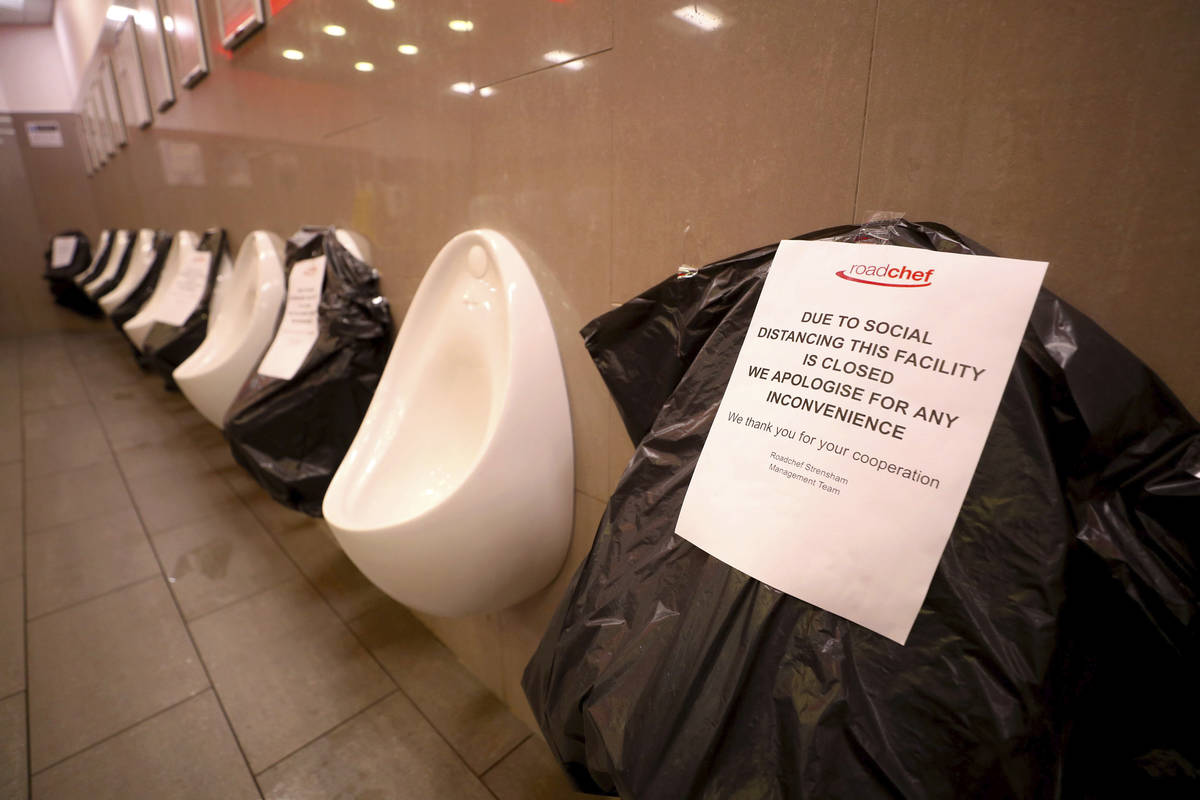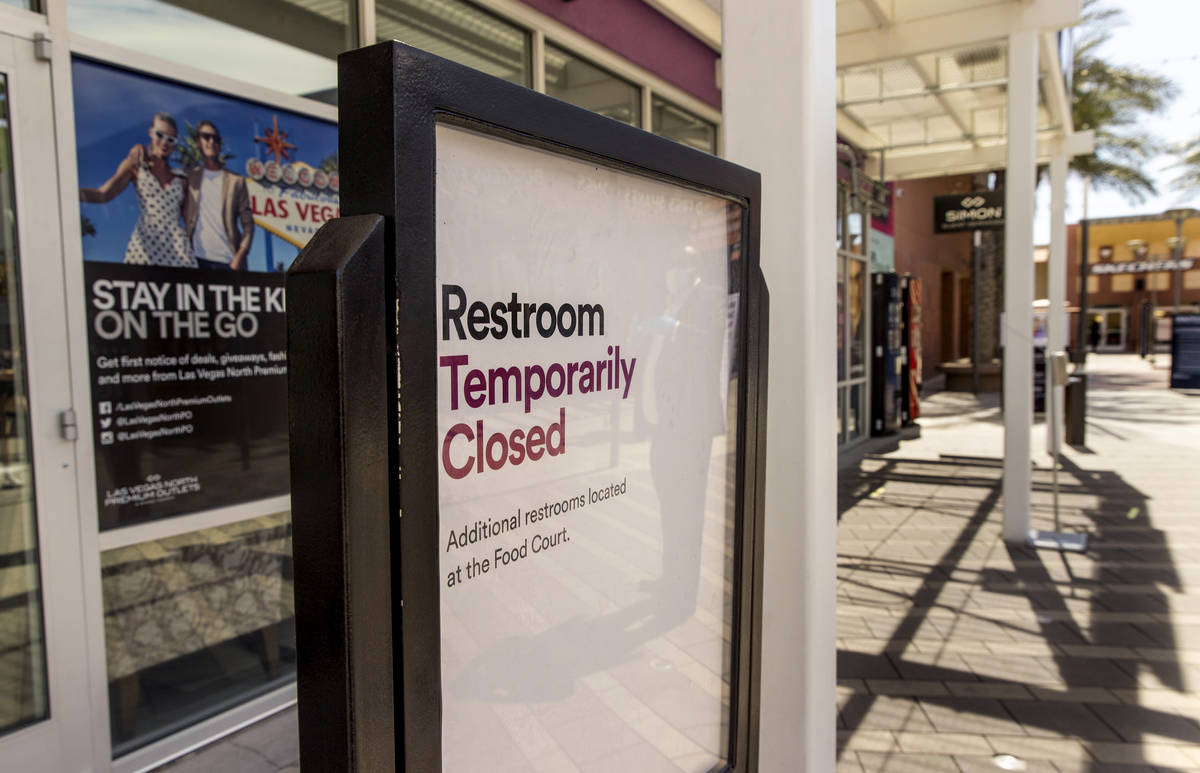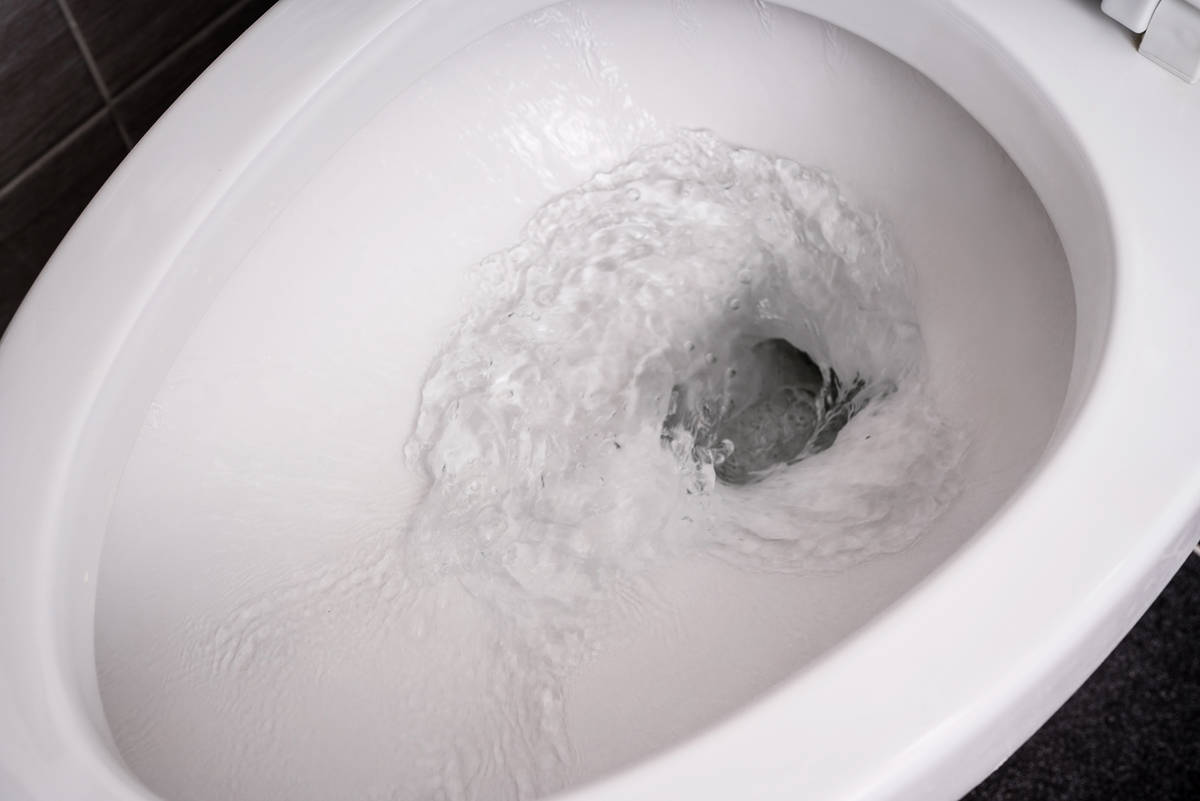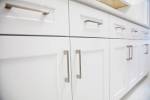As public restrooms reopen, how safe are they from coronavirus?
You do what you can.
Staying home as much as possible, and wearing a mask when you can’t.
Then you hear reports that, with businesses reopening, any toilet flush inside a public restroom could prove fatal, and the thought alone just might be enough to break you.
Public bathrooms are rarely a picnic. But fecal matter and COVID-19 being carried about by aerosolized toilet water? That’s the sort of thing Ian Ziering should be fighting with a chainsaw.
Before you start hoarding adult diapers and swearing off those facilities for good, though, take heart.
“I don’t think I’d be any more worried about public restrooms than I was before this outbreak,” epidemiologist Brian Labus said.
Rethinking the restroom
Toilet plumes, the spray that results from a high-pressure flush, and their ability to spread fecal material and viral particles are nothing new.
C.U. Jessen reported in 1955 that microbes could linger in the air for as long as eight minutes following a toilet flush. New York University microbiologist Philip Tierno made horrifying headlines in 2016 when he declared toilet plumes could reach a height of 15 feet.
Worries about those plumes are making the rounds again because, depending on the news cycle, seemingly any and every encounter could lead to a coronavirus infection.
“There haven’t been any definitive cases of transmission in that way,” said Tim Pyle, executive director of the American Restroom Association. “But when people start thinking about public restrooms and the splash effect of forceful flushing and what that means for water particles, even before COVID-19 people wouldn’t feel too comfortable about that.”
The nonprofit group advocates for safe, well-designed public bathrooms. Ideally, Pyle said, America would begin transitioning to the single-toilet, fully enclosed water closets commonly found in Europe. Until then, the association recommends blocking off certain urinals to allow for social distancing, as well as the use of toilet covers.
“If you have a lid on it,” Pyle said, “it’s definitely going to prevent that spread.”
The solution isn’t as simple as adding covers to all public toilets, though. It can’t be. If the current mask brouhaha is any indication, toilet lids would become just another social flash point. Many Americans would no doubt risk a face full of corona-poo rather than lower a toilet lid before they flush, because freedom.
Or they just wouldn’t flush at all.
Toilet covers aren’t a realistic cure-all, said Labus, the UNLV professor who spent 15 years as a senior investigator for the Southern Nevada Health District.
“Of course, it’s going to spray all over the inside of that lid, and the first thing (the next person is) going to do is grab the lid and lift it up. There’s trade-offs there. There’s no perfect answer. If we had a toilet design that was simple and would take care of these things, it’s what we’d use everywhere.”
In theory, a self-cleaning toilet that automatically raises and lowers its lid, like the ones Kohler and Toto have showcased at CES, would be ideal. But those start at around $2,000 and top out at $17,300.
Casino owners learned from the past
The American Restroom Association and local health officials advise against bathroom overcrowding.
“The Southern Nevada Health District recommends that establishments take steps to ensure social distancing recommendations are followed in public restrooms and that these facilities are cleaned and disinfected regularly using an EPA-registered disinfectant,” spokeswoman Jennifer Sizemore wrote in an email.
Nearly every casino operator in its reopening guidelines mentions increased cleaning and disinfecting of its bathrooms. Wynn announced the additional step of regular ultraviolet-light disinfection in large restrooms throughout the property. None of the released guidelines mentions social distancing inside those facilities.
But many casinos already were ahead of the safety curve. A couple of high-profile norovirus outbreaks on Fremont Street and on the Strip in 2003 and 2004 caused casino owners to rethink their bathroom layouts, Labus said. Think of the automatic flushing, faucets and paper towel dispensers, as well as restroom entrances that lack closing doors.
“Some of these disease prevention steps have been designed into our facilities long before we even knew what coronavirus was,” he said.
Those paper towel dispensers are key, by the way. As much as some of us would like to keep all that refuse out of landfills by using air dryers, that would mean skipping a critical step in proper anti-coronavirus hygiene.
“Part of hand-washing is using the paper towel,” Labus noted. “The friction from that is taking that last bit of stuff off your hands and putting it in the trash.”
Ways to limit the spread
When asked how worried we should be about the risks of contracting coronavirus in public restrooms, microbiologist and UNLV professor Brian Hedlund admitted, “I don’t know if we know enough.
“Globally, there really aren’t that many people who study coronaviruses,” he continued, “so we just don’t have a great history of knowledge about coronaviruses. So I think that’s part of the problem. Everybody’s scrambling now.”
Still, there are some steps you can take to protect yourself, just in case.
“If there’s no lid, flush and turn around or flush and don’t breathe that aerosol in,” Hedlund advised.
As in any other environment, he said, minimize hand-to-face contact, wash your hands with a good lather, and practice social distancing.
“I suspect that the line going to the bathroom and then the line going to the stall or urinal and then the line to the sink is probably a more significant thing,” Hedlund said, noting that COVID-19 is mostly transmitted through person-to-person contact.
“It’s not really a major concern,” Labus concluded about whatever’s lurking inside a public commode. “I won’t say that anything isn’t theoretically possible, but I’d be more concerned about somebody who’s sick and they’re coughing and they’re talking and the virus is coming out of their mouth. … Not so much what gets aerosolized on the toilet.”
Contact Christopher Lawrence at clawrence@reviewjournal.com or 702-380-4567. Follow @life_onthecouch on Twitter.



















































